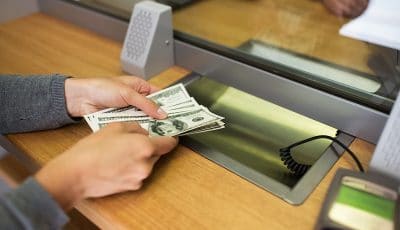
The Forex market, which is the largest financial market in the world is probably the first financial market that new investors are introduced to. As a matter of fact, these investors had already been introduced to the market without even realizing it. You see, every time you exchange USD for your local currency you are conducting a Forex trade. Therefore it is obvious that pretty much everybody in the world has taken part in it.
However, do you really need to travel around the world or go to banks in order to be able to exchange your currencies? Of course not! you can do the trading at home right in front of your computer, without even having to take off your pajamas.
The Forex Broker
Forex brokers are the gateway for pretty much all individual currency traders. They are the companies that either direct our orders for an exchange to the market or just file it themselves on their very own platform. As you can see, the broker has a lot of responsibilities when it comes to operations and they need to be very careful when dealing with customer funds. Therefore it is imperative that you choose the correct one. But how do you do it? Let’s get to finding out the various ways to choosing a broker.
1. Read Reviews
Reading reviews have both advantages and disadvantages. For example the review can be dishonest or poorly made, but distinguishing those is quite easy.
The reason why you should read reviews is quite simple. After you have glanced over the broker a little bit, there is a chance that you may have missed something, and a review will help you either find that missed detail or look at the broker from a completely different perspective. But as I’ve already mentioned there are disadvantages to it.
Let’s take for example the KontoFX reviews, which are varied between very negative and very positive. Therefore it is extremely hard to determine which one is honest and which one is a fake. If you think that a bad review cannot be dishonest you are mistaken. In most cases, these review websites make a bad review in the beginning, and after that approach the brokers with it, asking for money to change it into a positive one. So here we are, in a loophole of reviews, what do we do?
The best thing to avoid any type of confusion from these reviews is to ignore all opinions and suggestions. Yes, any type of personal opinion that the reviewer puts forward needs to be ignored, as it could be biased. What you should pay attention to is the information given by the review. If it is straight to the point and highlights all of the details about the company in the beginning, then it is most likely an honest one. If it drags out with meaningless blabbering, then they’re probably trying to just increase the word count.
2. Try the Demo Account
Most brokers have demo accounts that can be utilized in order to get the feeling of the discount broker. For example, you’ll be able to test their leverage, spreads and also customer support. However, these are the disadvantages that come with this option.
The broker will start pressuring you to switch over to the live account. If you haven’t guessed yet, a Demo account is basically a fake account that lets you trade with fake money and get the feeling of what its like to trade with this broker. A live account is where you actually deposit real money and trade on the real market. If the broker pressures you to switch, it’s already a big disadvantage.
Furthermore, it is hard to determine what type of policies the broker has about withdrawals. If they are even processed or do they just take too long? In this case it’s best to start with a small amount, the minimum deposit. And see how well you’ll be able to withdraw the deposit back. However, this is not the safest way to do so, arguably it is the riskiest.
3. Speak with the community
Most brokers have forums or social media pages where their customers can interact directly. Go to those forums and try to see what type of sentiment the community has. It’s best to check if the people posting are even real. Yes, there were cases when brokers created fake social media accounts and posted through them. Usually it’s easy to see if it’s fake or not, by having no activity aside the broker page.
However, once you find a real person, ask them the following questions:
- How long have you been trading with them?
- What’s your profit range?
- Were you able to withdraw your funds?
- Were you charged any unnecessary fees?
In most cases the people will have no issue about answering these questions. It’s one of the best ways to determine a broker’s reliability.


